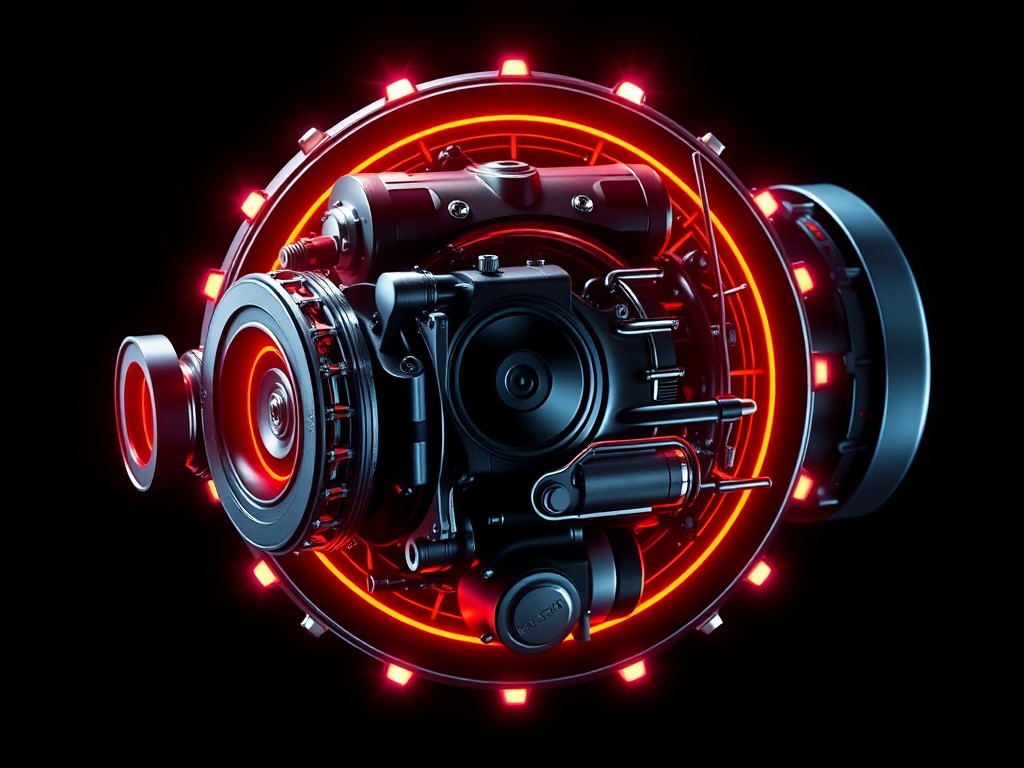Upgrading your vehicle with a performance chip can be an effective way to improve its power, fuel efficiency, and overall performance. These electronic devices, also known as "tuning chips" or "engine control units (ECUs)", communicate with your car’s engine to optimize its operations. In this comprehensive guide, we will explore how to choose the right performance chip to boost your UK car’s efficiency. Whether you drive a fuel, air, or diesel-powered car, this article will provide valuable insights on performance tuning and remapping for your vehicle.
Understanding How Performance Chips Work
Before you can make an informed decision about which performance chip to buy, it’s crucial to understand how these devices work. ECU chips essentially serve as the vehicle’s brain, regulating various engine functions such as fuel injection, spark timing, and air intake. By altering these parameters, a performance chip can increase your car’s power and torque, improving its acceleration and top speed.
Also read : How can regular detailing extend the life of your British vehicle?
Performance chips work by remapping the ECU settings to optimize engine performance. This process, known as "remapping," involves changing the software codes that control engine operations. Whether your car runs on petrol or diesel, remapping can significantly enhance its performance by altering the fuel/air mix, ignition timing, or turbo boost pressure.
While some performance chips offer pre-set tuning programs, others allow you to customize the remap to suit your driving style and performance goals. Custom remapping can yield better results, particularly for modified cars or specialty vehicles.
Also to read : How can you customize the interior of your British car for better comfort?
Evaluating The Impact On Fuel Economy
An important aspect to consider when choosing a performance chip is its impact on your car’s fuel economy. While some drivers are primarily interested in increasing their vehicle’s power and speed, others prioritize fuel efficiency and cost savings.
In many cases, performance chips can enhance both power and economy. By fine-tuning the engine’s parameters, these devices can deliver more power from less fuel, thereby improving gas mileage. This is particularly beneficial for diesel engines, which are inherently more fuel-efficient than petrol engines.
However, the impact on fuel economy will vary depending on how you drive your car. Aggressive driving can negate the fuel-saving benefits of a performance chip. Therefore, for optimum fuel economy, it’s advisable to drive conservatively even after installing a performance chip.
Choosing The Right Chip For Your Vehicle
When it comes to choosing a performance chip for your car, there are several factors to consider. Firstly, the chip must be compatible with your vehicle’s make, model, and engine type. Not all chips will work with all cars, so ensure the product you’re considering is suitable for yours.
Next, think about your performance goals. Do you want more power for acceleration and speed, or are you aiming to improve fuel economy? The right chip will depend on your specific objectives. For power and torque, look for a chip that offers aggressive remapping options. For fuel economy, a chip with eco-friendly tuning profiles could be the best choice.
Also, consider if you prefer a pre-set chip or one that allows custom remapping. While pre-set chips are easier to use, customizable chips provide more flexibility and can yield better results for your specific needs.
Lastly, consider the brand and price of the chip. Reputable brands are more likely to offer high-quality products that deliver reliable performance. While cheap chips may be tempting, they could end up costing more in the long run if they fail prematurely or damage your engine.
The Installation Process
Once you’ve chosen the perfect performance chip for your car, the next step is installation. Some chips are plug-and-play, meaning they can be easily inserted into the ECU’s port without any modifications. Others may require professional installation, especially if they involve custom remapping or modifying the car’s wiring.
Before installing the chip, ensure your engine is in good working condition. Tuning a damaged or poorly maintained engine can worsen the problems instead of improving performance.
Installation should always be done when the engine is cool. Disconnect the negative terminal of the car’s battery to prevent electrical shorts or damage to the ECU. Locate the ECU and carefully insert the chip into the appropriate port, ensuring it fits snugly. Reconnect the battery and start the engine to check if the chip is working correctly.
Always refer to the manufacturer’s instructions for specific installation guidelines. If you’re not comfortable handling the installation yourself, consider hiring a professional to do it for you. This will ensure the job is done correctly and safely, which can improve the chip’s performance and lifespan.
Maintaining Your Performance Chip
After installing a performance chip in your car, regular maintenance is necessary to keep it functioning optimally. This could involve updating the chip’s software, cleaning the chip and its connectors, or periodically checking its settings to ensure they’re still optimal for your car.
Performance chips are designed to be durable, but they can still wear out over time. If you notice a decrease in performance or strange engine behaviour, it could be a sign that the chip needs replacing. Regular maintenance can help prolong the chip’s life, ensuring you get the most out of your investment.
Choosing a performance chip for your car is a big decision, but with the right information and a clear understanding of your performance goals, it doesn’t have to be a daunting task. The right chip can boost your car’s performance and efficiency, providing a more enjoyable and cost-effective driving experience.
Understanding Different Types of Performance Chips
To enhance your car’s performance, you should be well-informed about the different types of performance chips available in the market. The most common types include engine control unit (ECU) chips, tuning boxes, and diesel tuning chips.
The ECU chips, also known as engine control units, are designed to communicate with your engine and control its operations. They work by modifying various engine parameters such as fuel injection, spark timing, and air intake. This modification results in an increase in power torque, enhancing your vehicle’s acceleration and top speed.
Tuning boxes, on the other hand, are external devices that can be plugged into your car to improve the engine performance. They work by altering the signals sent by the engine’s control unit to the fuel system and other engine components. This alteration allows your engine to produce more power from the same amount of fuel, thereby improving fuel efficiency.
Diesel tuning chips are specifically designed for diesel engines. They work by adjusting the fuel injection timing and quantity, leading to improved performance and reduced fuel consumption.
Understanding these different types of performance chips can help you make an informed decision about which one is best suited for your car.
Balancing Performance Enhancement and Fuel Economy
While performance chips are primarily designed to boost your car’s power and speed, it’s important to also consider their impact on fuel economy. After all, a vehicle that has high power but consumes fuel rapidly may not be the most efficient or cost-effective option.
Some performance chips balance both aspects effectively. They boost your vehicle’s power torque while also improving its fuel efficiency. By altering the air-fuel mix and ignition timing, these chips can help your engine produce more power from less fuel.
However, keep in mind that the way you drive your vehicle can significantly impact its fuel economy. For instance, aggressive driving can offset any improvement in fuel efficiency provided by the performance chip. Therefore, to reap the full benefits of your performance chip, it’s advisable to adopt a conservative driving style.
In conclusion, when choosing a performance chip for your vehicle, it’s crucial to consider various factors such as your car’s make and model, your performance goals, and the chip’s impact on fuel economy. Regular maintenance of the chip is also key to ensuring its optimal functioning and prolonging its lifespan. Whether you’re looking for a power boost, improved fuel efficiency, or a balanced combination of both, there’s a performance chip out there that can meet your specific needs and enhance your driving experience.











